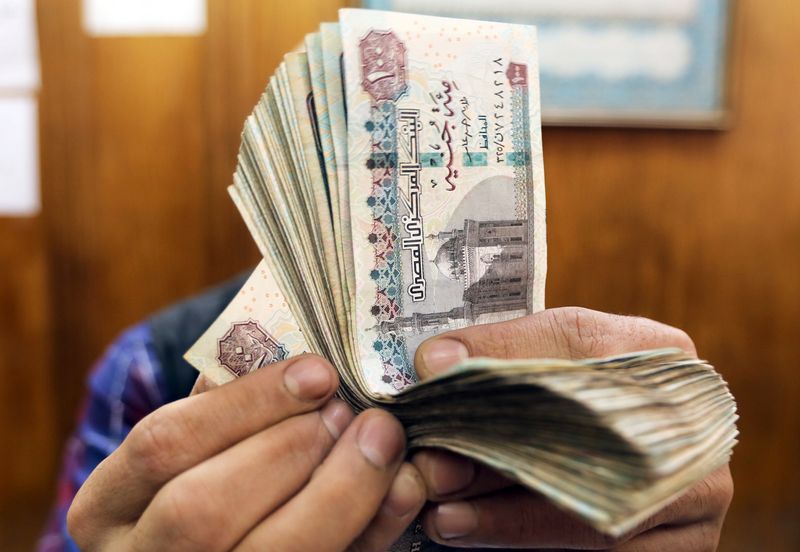Gap shrinks between Egypt’s official, black market dollar prices – traders
2022.11.02 04:08
[ad_1]

© Reuters. FILE PHOTO: An employee counts Egyptian pounds at a foreign exchange office in central Cairo, Egypt, March 20, 2019. REUTERS/Mohamed Abd El Ghany
By Mahmoud Salama
CAIRO (Reuters) – The gap between the official and black market price of dollars in Egypt has narrowed significantly since the central bank announced a flexible exchange rate policy, three parallel market traders told Reuters on Tuesday.
The Egyptian pound was trading at 24.15 to the dollar on Tuesday, according to Refinitiv data.
That is about 18.5% weaker than its rate before a sharp depreciation last Thursday, when Egypt said it would adhere to a “durably flexible” exchange rate as a new International Monetary Fund loan was announced, and about 35% weaker than its level at the start of the year.
Since Thursday the gap between the black market and official rates for most transactions has shrunk to just five or ten Egyptian piasters, one of the traders said, though a second trader said large purchases of dollars were still being made on the black market at rates as high as 26 Egyptian pounds.
The level of trade in the black market had not significantly changed due to a lack of liquidity in the official market, a third trader said, speaking on condition of anonymity.
In a call with investors on Monday, Egypt’s central bank governor and deputy governor said the bank was committed to a flexible exchange rate and would continue on this path, according to two people who took part in the call.
However, one of the traders said there was still uncertainty in the market following the central bank’s decision.
Supplies of dollars to importers have been restricted in recent months under a rule that required them to use letters of credit supplied by banks, causing a shortage of foreign currency and a major slowdown in imports.
The central bank has said the rule will be gradually phased out by December. It has also said it is working to create a derivatives market that would allow hedging against currency fluctuations.
[ad_2]
Source link








